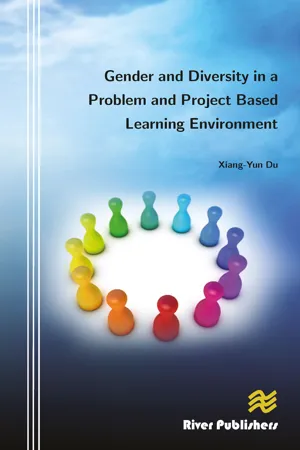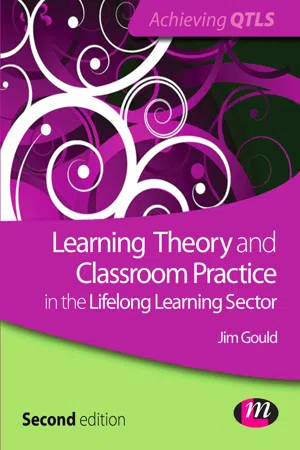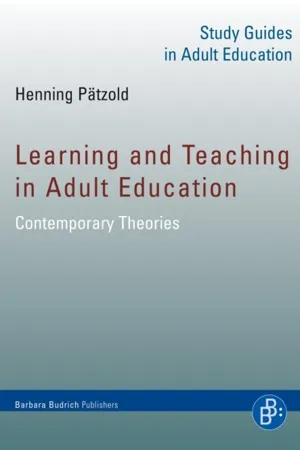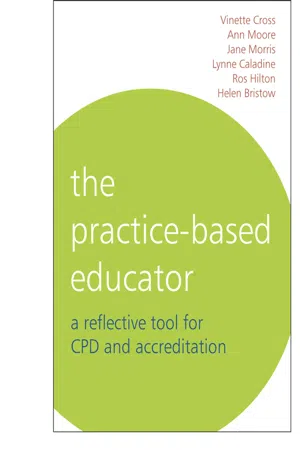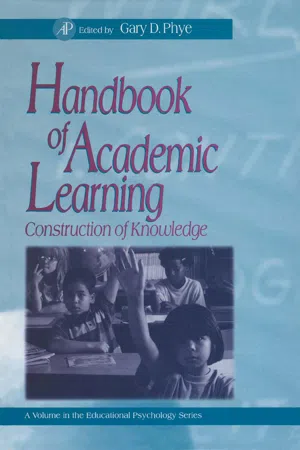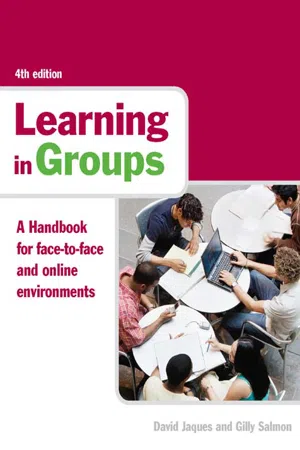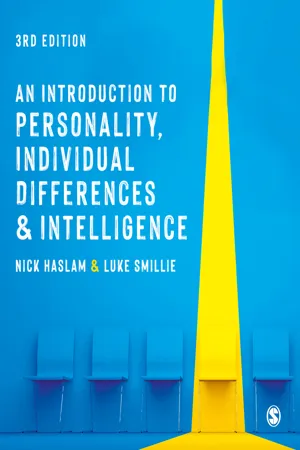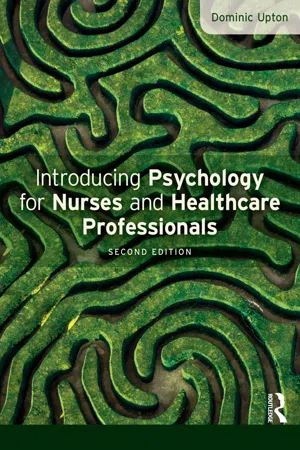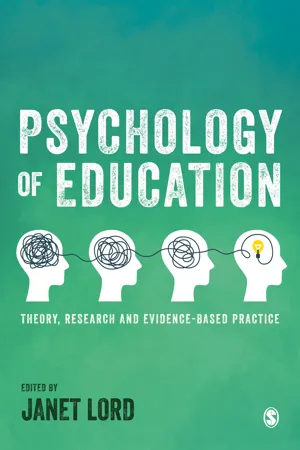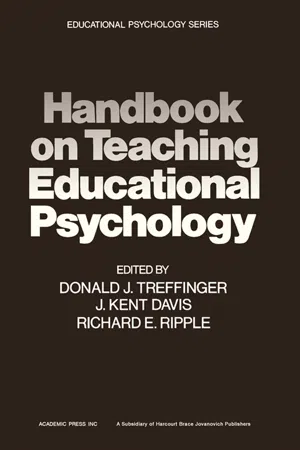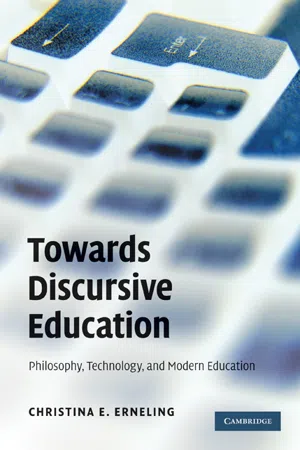Psychology
Learning Approaches
Learning approaches in psychology refer to the various theories and methods used to understand how individuals acquire new knowledge and skills. These approaches include behaviorism, cognitivism, constructivism, and humanism, each offering unique perspectives on the learning process. Behaviorism focuses on observable behaviors, while cognitivism emphasizes mental processes, and constructivism highlights the role of active learning and social interactions.
Written by Perlego with AI-assistance
Related key terms
1 of 5
12 Key excerpts on "Learning Approaches"
- Xiang-Yun Du(Author)
- 2022(Publication Date)
- River Publishers(Publisher)
There are various approaches exploring theories of learning in terms of what learning is and how it happens. Psychologists, anthropologists, linguists, philosophers and educators are trying to understand how the mind works and how people learn from different perspectives. Therefore, there remain diverse beliefs and definitions on learning. It is a difficult task to distinguish these different approaches clearly since each approach is undergoing changes throughout human history. These changes also bring about various overlaps regarding perceptions of the nature of knowledge as well as understanding of learning both theoretically and empirically.In this section, I will have a brief review of a number of approaches that have been well-employed in the history of western educational settings, for example, behaviourist approach, cognitivist approach, and construction-sociocultural approach. The intention of this review is not for categorization, but rather, to gain an overview of different ways of understanding knowledge and exploring learning. Through discussing the relation of each approach to my research, I will provide a theoretical rationale for employing a constructivist-sociocultural approach to examine learning. The point of departure for this choice is from the learning principles of the PBL environment (as discussed in Chapter 2 ) as well as my research interest in the meaningfulness in learning.3.1.1 Behaviourist Approach
Emerging after the Enlightenment, behaviourism focuses on objectively observable behaviours and discounts mental activities. For this approach, knowledge is a collection of information, and it is more explicit rather than tacit (Bigge and Shermis, 1999 ). Accordingly, Learning is seen as a change in observable behaviour, and it is often defined as the acquisition of new behaviour (Woolfolk, 1987 ; Jarvis et al., 1998- Jim Gould(Author)
- 2012(Publication Date)
- Learning Matters(Publisher)
4
Cognitive approaches
Chapter overview and objectives
This chapter explores cognitive views on learning, comparing them with the behaviourist perspective outlined in Chapter 2 . Cognitive is an umbrella term for several different approaches but all share the common feature of looking for meaning and understanding. Comparison with behaviourism will be made easier by providing answers to the same issues previously considered in Chapter 2 , although not necessarily in the same order.When you have worked through this chapter you will be able to:- recognise the strengths and limitations of the behaviourist perspective on learning;
- state the defining characteristics of the cognitive perspective on learning;
- describe the contribution of Gestalt psychology to an understanding of the learning process;
- define learning from a cognitive perspective and identify its source of motivation;
- differentiate between the approaches to learning advocated by Bruner and Ausubel;
- compare behaviourist and cognitive perspectives on learning.
Cognitivism as a reaction to behaviourism
The last two chapters have dealt in some detail with behaviourism and how this particular perspective on learning can be translated into practice. Behaviourism was the major influence on educational practice in the 1960s and 1970s and it is clear that there are some distinct advantages in using this approach to teaching and learning.Behaviourism introduced precision into the teaching and learning process, moving the emphasis away from content and towards the learning that was to take place. This precision and shift of emphasis allowed for a more accurate and exacting assessment process, an important consideration in a time of movement towards increased accountability in education. Furthermore, the ‘scientific’ approach upon which behaviourism was based, led easily into a systematic approach to planning.- Available until 15 Jan |Learn more
Study Guides in Adult Education
Contemporary Theories
- Henning Pätzold(Author)
- 2011(Publication Date)
- Verlag Barbara Budrich(Publisher)
Overall, the psychological approaches (and constructivism as a related one) seek to explain the general processes that underlie learning. In this re-spect, they are comparable to the natural sciences, which try to reveal the natural laws that form the basis of physical, chemical, or biological occur-rences. Education researchers sometimes use the respective results in the same way that engineers exploit findings from physics: to develop, try out, or justify specific concepts, treatments, and the like. For a long time, it seemed 59 that the natural sciences on the one hand and the ‘mind sciences’ on the other could not become more equivalent, as there was no hint that it may be possi-ble to deal with mental phenomena in a way similar to the way natural sciences treat material phenomena. In recent decades, however, that expecta-tion has been disproved by the immense progress made in the field of neuros-cience within a short period of time. The following section provides an intro-duction to neuroscience and its implications for learning theory. Figure 10 : A comparison between cognitivism/behaviourism and construc-tivism Source: own source 6.2 The learning brain? The basic concepts of behaviourism entered the field of learning and teaching at a time of great expectations and optimism that bordered on fantasies of omnipotence. One of the immediate visible results was the creation of a con-cept called programmed instruction in the late 1950s (cf. Bullock, 1978). As behaviourists succeeded in teaching animals to perform rather complex ac-tions by cueing them in a series of stimuli-response-frames, it seemed prom-ising to transfer this approach to human learners and find an efficient and re-liable way of teaching virtually anything to anybody. It seemed that the very laws of learning had been revealed and were now at hand to revolutionise learning and teaching. - eBook - PDF
The Practice-Based Educator
A Reflective Tool for CPD and Accreditation
- Vinette Cross, Lynne Caladine, Jane Morris, Ros Hilton, Helen Bristow, Ann Moore(Authors)
- 2006(Publication Date)
- Wiley(Publisher)
Are they allowed enough space to process their learning thoroughly? At the start of this chapter, we identified four broad approaches to learning theory: ‘behaviourism’, ‘cognitive psychology’, ‘developmental’ and ‘humanis-tic’. From your reading you will have discovered that these approaches are not mutually exclusive but have areas of overlap. Being aware of theories underly-ing learning will help you to understand better the variations in behaviour and response you see in learners you work with, as well as in your own learning. Also, as Figure 5.3 illustrates, it will enable you to decide how best to assist learners to achieve deep, lasting learning and maximise the learning potential of the practice-based setting. Summary This chapter has explored the value of learning theories to practice-based educa-tors. Important points to consider are: • Understanding how people learn is a valuable basis for practice-based educators to provide effective facilitation for learners. • Theories about how people learn are closely interrelated. • Learners and educators vary in their readiness and ability to use the skills and strategies associated with adult learning. • Developing the skills of self-directed learning and collaborative learning is funda-mental to achieving the status of a competent, reflective, autonomous healthcare practitioner. Now complete the portfolio sheet for Chapter 5. • Check how often you use aspects of learn-ing theory to optimise your effectiveness as a practice-based educator. • Consider what evidence you have of your ability to fulfil ACCREDITATION OUTCOME III. Is it sufficient? If not, identify where the gaps lie and how they might be filled. • Identify your continued-development needs. learning theories 85 BEHAVIOURISM COGNITIVE PSYCHOLOGY DEVELOPMENTAL HUMANISTIC Give frequent feedback to reinforce desirable learning behaviours and increase learner motivation. - eBook - ePub
The Social Context of Learning in India
Achievement Gaps and Factors of Poor Learning
- Manoj Kumar Tiwary, Sanjay Kumar, Arvind Kumar Mishra, Manoj Kumar Tiwary, Sanjay Kumar, Arvind Kumar Mishra(Authors)
- 2023(Publication Date)
- Routledge India(Publisher)
we must be profoundly historical and must always present man’s behavior in relation to the class situation at the given moment. This must be the fundamental psychological technique for every social psychologist.(Vygotsky, 1997a : 212)This chapter attempts to understand classroom learning particularly its variability among students from different social backgrounds beyond the monopolistic discursive framework of mainstream educational psychology through the psychological tools approach. The practical applications of the approach aimed at facilitating learning in academic contexts for children from the non-middle class and other disadvantaged backgrounds are discussed.View from Mainstream Educational Psychology
Educational psychology emerged as an intellectual tradition with the ascent of learning theory as a vital area of study. The behavioural approach to learning beginning in the late nineteenth-century proposed stimulus–response (S–R) explanations. The role of ‘reinforcement’ and its various schedules was assumed to be central to learning. The concept of learning was explained in terms of contiguity, conditioning, association, connectionism, and S–R bond formation. Psychologists the world over were in search of ‘general laws that would lead eventually to a scientific theory of learning’ (Wood, 1998 : 3). The key debates that continued to occupy preeminence till the first half of the twentieth century were on the themes of contiguity versus reinforcement, types of conditioning, and whether different types of learning occurred through different or the same laws and principles (Bower & Hilgard, 1981 : 16–17). There was fealty to recognise only the objective, directly observable, universal, and manipulable aspects of individual psychological functioning as legitimate objects of study.Behaviourism has remained a tenacious influence upon school education as it dominates educational practices since its inception, with classroom learning defined as an externally observable activity (learning outcomes) manipulated by external reinforcement from the environment (teaching). The competence movement, learning by practice, programmed learning, pedagogic techniques based on worksheets, paper–pencil testing, and rewards are ideas that reflect the pervasive impact of behaviourism upon prevailing schooling practices. The domination of paper–pencil testing as the sole measure of learning, with external learning outcomes as its proxy indicator, has resulted in rote-memorisation-based, examination-oriented practices all over modern societies in various parts of the world. Ironically behavioural perspectives are nearly moribund in educational theory as ‘educators are unwilling to accept its assumptions about human nature and process of learning’ (Raina, 2008 - eBook - PDF
Handbook of Academic Learning
Construction of Knowledge
- Gary D. Phye(Author)
- 1997(Publication Date)
- Academic Press(Publisher)
Academic Learning Perspectives, Theory, a ~ d Models This Page Intentionally Left Blank CHAPTER l The Social Construction of Learning ERIC BREDO University of Virginia INTRODUCTION Contemporary learning theory faces a number of challenges. One of these arises from the split of learning theory largely into two opposing camps, behaviorist and cognitivist (Bower & Hilgard, 1981). At their most extreme, behaviorists studied bodily movement without mind, focusing on simple learning in animals such as chickens, rats, and pigeons, while cognitivists studied mind without bodily movement, as in human symbolic problem solv- ing modeled on computers. Many textbooks are divided down the middle between these two approaches, sometimes even using two different defini- tions of learning in the same book. As one scholar put it, It can reasonably be claimed that these two psychologies of learning remain separate in con- temporary psychology (Catania, 1992, p. 353). The polarization between behaviorist and cognitivist approaches to learn- ing creates both theoretical and practical difficulties. Theoretically, it makes it hard to understand the relationship between learning mechanical skills and more complex symbolically mediated learning. Practically, education based on such polarized views is likely to produce one-sided specialists who act in one-sided ways. Those instructing the learning disabled in schools, for example, tend to be trained as behaviorists, while those teaching the gifted tend to be trained in cognitive theory. To the extent that these be- come exclusive orientations, there is the danger that students of one group Handbookof Academic Learning Copyright 9 1997 by Academic Press, Inc. All rights of reproduction in any form reserved. 4 Eric Bredo will be taught to behave without thinking, and students of the other to think without practical application. - eBook - ePub
Learning in Groups
A Handbook for Face-to-Face and Online Environments
- David Jaques, Gilly Salmon(Authors)
- 2007(Publication Date)
- Routledge(Publisher)
Explorations of learning styles challenge many assumptions and continue to suggest alternative solutions in the realm of student learning. They also present insights into the value of group work and the way in which groups may be organised and run to greater effect.Our attention now focuses less on trying to change learners and more on changing the way they experience, perceive and conceptualise their learning in groups.THE NATURE OF LEARNING
‘Many theories and insights exist in respect of what learning in fact comprises. They depend as much on the orientation of the definer as on the nature of learning’ (Brown 2004).For a committed behaviourist, learning is the modification of behaviour brought about by experience. For most cognitive psychologists, learning is the study of how information is sensed, stored, elaborated and retrieved. Others stress the importance of metacognition – learning to learn – or reflection on action as well as experience per se.Humanistic psychologists are more likely to insist that personal growth and development are at the heart of learning, while constructivists argue that learning is primarily concerned with how people develop different conceptions and constructions of reality.These different views of learning are themselves examples of constructivism at work, of how different people view learning. Each view leads to a different emphasis and consequent neglect of other features of learning.Behaviourism led to the use of learning objectives and outcomes as a means of setting directions to learning. Mager (1984) asserted ‘If you don't know where you are going, it is difficult to select a suitable means for getting there.’ It focuses on what the learner is expected to be able to do as a result of their activity, how they should demonstrate their achievement, the conditions under which that will occur, and what the criteria will be for acceptable performance. It says little about the process of the journey, though it can help in creating and clarifying learning outcomes (see Chapter 5 - Nick Haslam, Luke Smillie(Authors)
- 2022(Publication Date)
- SAGE Publications(Publisher)
7 Cognitive Approaches to Personality and Their PrecursorsLearning objectives
- To understand how cognitive approaches to personality differ from trait and other approaches.
- To develop a working understanding of the basic concepts of personal construct theory.
- To understand the concept of ‘attribution’ and the dimensions of attributional style.
- To understand the concept of ‘coping’ and the main forms of coping strategy.
- To understand the concept of ‘self’ and personality variables involving the evaluation and structure of the self (i.e., self-esteem and self-complexity).
This final chapter in the ‘Explaining personality’ section presents several ways of accounting for individual differences that share an emphasis on cognition. They all focus on the ways in which people actively make sense of their world: interpreting it, explaining events, coping with adversities and representing information about themselves. We first discuss the theoretical perspectives that provide the historical context from which the cognitive approach emerged, namely behaviourist, humanistic and social learning theories. We then turn to the work of a cognitive pioneer, George Kelly, and his psychology of ‘personal constructs’: ways of making sense of people and events by perceiving their similarities and differences. Following this, we investigate ‘attributional style’, a concept that refers to individual differences in ways of explaining the causes of events: whether something is due to factors internal to the person or to their external environment, to causes that are temporary or enduring, and so on. The implications of different styles for physical and mental well-being are discussed. Finally, we outline the varied strategies people use to deal with stress in a section on coping, and the mixed implications of viewing oneself in a positive or multifaceted fashion (‘self-esteem’ and ‘self-complexity’).- Dominic Upton(Author)
- 2013(Publication Date)
- Routledge(Publisher)
cognitive revolution ’, and grew in part out of increasing dissatisfaction with behaviourist explanations. Cognitive psychology is concerned with human thought processes and the ways in which these processes interact with behaviour (Eysenck and Keane, 2010). There are many facets of cognitive psychology but some of the major areas include memory, learning, intelligence, thinking and language. Like behaviourism it too rejects introspection as a valid method of investigation and maintains that the only true source of knowledge is that which is obtained through observation and experiment (Eysenck and Keane, 2010). Yet somewhat incongruous to this is the fact that it explicitly acknowledges the existence of unobservable mental processes. Although there have been many contributors to cognitive psychology, no specific person can be identified as central to its development. What is more, unlike other approaches cognitive psychology does not yet have a unifying theory.Information processingAssumptions of the cognitive approachAcknowledges the existence of unobservable mental processes and emphasises their importance in determining and predicting behaviour. Accepts empiricist ideas and use of the scientific method. Is based mainly on laboratory experiments. Views the mind as an information processor, i.e. it computes answers to problems in a manner analogous to a computer. Psychologists have often tried to understand human cognition by comparing it with something less abstract and better understood. Hence the advent of the modern digital computer provided psychologists with an ideal metaphor for conceptualising how the mind worked and inspired what is now the main paradigm within cognitive psychology: the information processing approach (e.g. Forgas and Jennifer, 2001). According to this approach, the mind is analogous to an information processing system: inputting, storing and retrieving data. This system is used in flexible ways to handle all kinds of cognitive tasks, from reading the newspaper to playing a game of chess. An early version of the information processing approach is shown in Figure 2.4- eBook - ePub
Psychology of Education
Theory, Research and Evidence-Based Practice
- Janet Lord(Author)
- 2022(Publication Date)
- SAGE Publications(Publisher)
This chapter will introduce you to some of the core areas within the psychology discipline. We will look at cognitive psychology, developmental psychology, social psychology and research methods, and offer insight into how these areas apply to the field of education. Each topic will be covered in more detail throughout the course of the textbook, but here we aim to provide you with a well-rounded backdrop.Chapter Map- Cognitive psychology
- Behaviourism
- The cognitive revolution
- The application of cognitive psychology to education
- Developmental psychology
- Life span development
- Typical and atypical development
- The importance of early attachments
- Social psychology
- Social thinking
- Social influence
- Social behaviour
- Psychological research methods
- Quantitative research
- Qualitative research
Key words
Cognitive psychology, developmental psychology, social psychology, quantitative research, qualitative researchLearning objectives
By the end of this chapter, you will be able to:- Understand what is meant by the term cognitive psychology and consider how the area has developed
- Define what is meant by the term developmental psychology and understand the life course perspective
- Understand the aims of social psychology as a psychological discipline and how this relates to three key concepts: social thinking, social influence and social behaviour
- Understand the differences between quantitative and qualitative research, and the use of particular methods
Cognitive Psychology
Cognitive psychology is the scientific study of human cognition and is related to how we think and process information. It covers several aspects including perception, attention, memory, language, learning and problem solving. It often involves recruiting participants to take part in experiments which assess behaviours to provide an insight into the individuals’ cognitive processes. Commonly, individuals will complete a task in a laboratory setting, which could be, for example, a driving simulation to test their attention, or a learning or memory task to assess recall or processing. - eBook - PDF
- Donald J. Treffinger, J. Kent Davis, Richard E. Ripple, Donald J. Treffinger, J. Kent Davis, Richard E. Ripple(Authors)
- 2013(Publication Date)
- Academic Press(Publisher)
Process Approaches to the Teaching of Educational Psychology 281 collective explanatory utility across the range of situations encountered in teaching. This does not preclude an intensive study of a single theory, provided other theories are not ignored. Similarly, the process category concerned with recognizing and constructing cogent and accurate verbal statements and descriptions, if taken seriously, would dictate that both students and instructors should use precisely stated objectives or operational statements in the specification of particular learning tasks to be undertaken among the general content and process skills framework for the course. These operational statements could be much like those currently used in LCI and PSI approaches in their statements of learning objectives and contracts. The skill domain concerned with general fluency and flexibility of thought, perception, and response requires that instruction should be arranged to encour-age both students and instructors to solve individual problems in multiple ways and to explain individual situations from many conceptual perspectives. This would be true in instructional tasks, lecture material, test items, and real-life or simulated teaching situations. In carrying out such activity the value clarification skill domain would dictate that students examine alternate conceptualizations, interpretations, and solutions to problem situations, freely choose what they will believe or elect to do on an informed basis, and publicly affirm and defend their choice among their peers. In examining, choosing, planning, and explaining a course of action or decision in an instructional or teaching related situation, both the student and instructor would also be expected to make appropriate observations, to construct good and reasonable inferences, and to clearly distin-guish between the two, recognizing that inferences are always tentative and open to reformulation with additional data. - eBook - PDF
Towards Discursive Education
Philosophy, Technology, and Modern Education
- Christina E. Erneling(Author)
- 2010(Publication Date)
- Cambridge University Press(Publisher)
6 The socio-cultural approach to learning introduction: two different ideals of psychological order In previous chapters , and especially in Chapter 1 , I claimed that there is a tendency towards the infantilisation of education. This is especially prevalent in the literature on the educational use of computer tech-nologies. The ideas and arguments presented in this literature to a large extent rely on what can be called natural learning theories, which in general see learning as a natural process like the acquisition of one ’ s fi rst language and basic concepts and skills during infancy. Computer technology, according to this approach, helps schools create situations in which children learn everything in the same enjoyable and easy way they acquired basic cognitive skills in infancy, the paradigm of natural learning. One could also describe this as the infantilisation of science, since more recent theoretical approaches, represented by those of ‘ theory theory ’ and ‘ theory of mind ’ , claim that infants and scientists reason in a similar way. It is these natural learning theories that I have discussed critically above. In this chapter, I shall present an alternative approach to learning, which instead sees socio-cultural activities, rather than natural individual reactions, as paradigmatic. Natural learning theories go back a long time and include, most prominently, those of Jean-Jacques Rousseau, but their modern form, as we noted above, is inspired particularly by Piaget and his followers. In addition to these, there are Chomsky ’ s ideas of an innate universal grammar and language acquisition as hypothesis testing, as well as other versions of internalist constructivist theories that have been in fl u-ential. These theories are, as I have argued in previous chapters , all part of mainstream individualistic and mentalistic psychology, which in its turn has grown out of the Cartesian – Kantian philosophy of mind and
Index pages curate the most relevant extracts from our library of academic textbooks. They’ve been created using an in-house natural language model (NLM), each adding context and meaning to key research topics.
